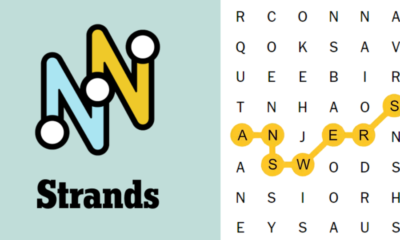News
Explore JPost Israel’s Leading English News Platform

JPost A Comprehensive Guide to Israel’s Leading English News Outlet
Introduction
In a world where timely and accurate news is essential, few publications serve as reliable a role in the Middle East and Jewish global affairs as JPost. Short for The Jerusalem Post, JPost is Israel’s top English-language news outlet, widely read by policymakers, diplomats, journalists, scholars, and general readers across the globe.
Whether you’re tracking developments in the Israeli-Palestinian conflict, monitoring Israel’s thriving tech scene, or staying up to date with Jewish diaspora affairs, JPost offers unmatched access and insight. This article delves deep into the publication’s history, structure, coverage, controversies, and its place in the digital era.
The Origins and Evolution of JPost
From Palestine Post to Jerusalem Post
JPost was originally founded in 1932 as The Palestine Post by Gershon Agron, an American-born Zionist journalist. The publication served as a voice for the Jewish community in British Mandate Palestine, offering news in English and advocating for the creation of a Jewish state.
Following the establishment of Israel in 1948, the newspaper was renamed The Jerusalem Post in 1950, aligning its identity with the newly founded nation and its capital city. From that point on, it would evolve into a critical media institution for both local and global audiences.
Growth Into a Global Brand
Over the decades, JPost has cemented its place as a reputable news source. While the paper is headquartered in Jerusalem, its influence stretches far beyond Israel’s borders. Print editions reached Jewish and English-speaking communities across North America, Europe, and Australia, while its online expansion further extended its global reach.
The Rise of JPost in the Digital Age
Website and Digital Expansion
JPost’s website, JPost , has become one of the most visited English-language news platforms in the Middle East. It offers breaking news, live updates, editorial analysis, op-eds, and features covering a broad spectrum of topics. The site also includes video content, podcasts, and interactive digital tools, appealing to modern-day media consumers.
Its clean layout, fast updates, and robust archives have contributed to its success as a go-to source for Middle East news in English.
Social Media and Multimedia Integration
The digital strategy of JPost includes an active presence on social media platforms like Facebook, Twitter, Instagram, LinkedIn, and YouTube. The publication shares snippets of breaking news, interviews, and infographics, offering content in both short-form and long-form formats to suit all types of users.
Its mobile app further supports real-time push notifications, catering to on-the-go readers and journalists.
Editorial Focus and Core Coverage Areas
Israeli Politics and Government
One of JPost’s core strengths lies in its comprehensive and insightful coverage of Israeli politics. It reports on:
-
Knesset (parliament) proceedings
-
Election coverage and analysis
-
Prime Minister’s Office decisions
-
Cabinet reshuffles
-
Political scandals and transparency reports
Whether you’re a foreign journalist or a concerned citizen, JPost provides the political pulse of Israel.
Regional Affairs and Middle East Coverage
As the Middle East remains one of the world’s most volatile regions, JPost covers:
-
Israeli-Palestinian relations
-
Peace deals and normalization treaties
-
Military operations and defense strategies
-
Terror attacks and security concerns
-
Developments in Iran, Syria, Lebanon, and Gaza
This kind of in-depth and localized reporting gives JPost a strong edge over international outlets.
Jewish World and Diaspora Affairs
Beyond Israel, JPost also has a deep commitment to covering Jewish life worldwide. The outlet features stories on:
-
Antisemitism trends and responses
-
Jewish community events
-
Educational and religious developments
-
Holocaust remembrance and education
-
Jewish identity in secular societies
This makes JPost a central source for the global Jewish community.
Inside the JPost Editorial Team
Journalistic Standards and Credibility
JPost operates with a mix of experienced journalists, young reporters, analysts, and foreign correspondents. The paper adheres to strong journalistic ethics, including verification, multiple sourcing, and a dedication to transparency.
Its editorial board also includes guest contributors and analysts from around the world—adding academic, military, and policy perspectives to the content.
Opinion Pieces and Political Balance
Though JPost has often been categorized as center-right, particularly regarding Zionism and Israeli security, it maintains a platform for diverse opinions. You’ll find liberal, centrist, and conservative voices sharing space—sometimes even clashing—which creates a dynamic editorial ecosystem.
Op-eds range from local commentators to international thought leaders, offering readers a well-rounded perspective.
JPost Conferences and Global Influence
JPost doesn’t limit itself to print and online media. It also organizes high-profile international conferences, especially in New York and Jerusalem. These events feature:
-
Israeli Prime Ministers and Presidents
-
U.S. Senators and Ambassadors
-
Military officials and defense experts
-
Academics and thought leaders
-
Jewish community organizers and philanthropists
These events underscore the paper’s role as more than just a news outlet—it acts as a convening power for meaningful dialogue and policymaking.
JPost in Times of Crisis
During national and global crises, JPost plays an even more critical role. Whether it’s:
-
The COVID-19 pandemic
-
The 2023 judicial reform protests
-
Hezbollah and Hamas threats
-
Iran nuclear deal negotiations
JPost’s correspondents provide fast, accurate, and verified information. During times of war, the site often introduces live blog coverage, maps, and analysis tools to help readers track developments in real time.
Controversies and Criticism
As with any major publication, JPost has faced its share of controversy. It has been criticized from both left and right—accused at times of:
-
Overly nationalist reporting
-
Insufficient balance in Israeli-Palestinian coverage
-
Publishing sensational headlines
-
Lack of depth on socio-economic issues in Israel
Nonetheless, the publication continues to offer an open forum and frequently publishes reader letters, corrections, and op-eds that challenge its editorial line—demonstrating a commitment to free expression.
JPost’s Global Audience
Who Reads JPost?
The audience of JPost includes:
-
Israeli citizens (English speakers)
-
Jewish diaspora in the U.S., UK, Canada, Australia, South Africa
-
Diplomats, journalists, and policymakers
-
Students, researchers, and think tanks
-
Christian Zionist communities worldwide
The combination of accessibility, credibility, and relevance makes it one of the top-rated international sources for news from Israel.
Educational and Research Relevance
JPost is frequently cited in:
-
University syllabi for Middle Eastern studies
-
Policy papers and government briefings
-
Think tank publications
-
International media reporting
Its archives and real-time reporting serve as JPost essential tools for analysis and learning.
Future Outlook for JPost
Innovation and Expansion
As JPost continues to evolve, several initiatives point to its forward-thinking approach:
-
More in-depth video and podcast content
-
Arabic-language content expansion
-
Hebrew-English side-by-side reporting tools
-
Partnerships with global news networks
-
Stronger AI integration for personalized reader experiences
Challenges Ahead
JPost will need to navigate:
-
Rising misinformation online
-
Competition from newer digital media
-
Political pressures from domestic and foreign interests
-
Monetization in a changing ad market
Still, with its history and infrastructure, it appears well-positioned for continued relevance.
Conclusion: Why JPost Matters
The JPost brand stands tall among international English-language newspapers. With its roots in the struggle for Jewish statehood and its wings now spread across the global digital landscape, JPost provides an essential window into Israel and the Jewish world.
Its legacy of journalistic integrity, editorial diversity, and real-time accuracy makes it indispensable for anyone seeking to understand the complexities of the Middle East and beyond.
News
London Lockdown: How the City Adapted and Survived

How the City Adapted and Survived
The London lockdown was an unprecedented chapter in the city’s long and storied history. From empty streets and shuttered businesses to transformed homes and community solidarity, London faced challenges that tested its resilience, adaptability, and creativity. While the term “lockdown” might conjure images of isolation and hardship, the reality in London was a story of survival, adaptation, and ingenuity.
This article explores how Londoners navigated the lockdown: the social, economic, and cultural impacts, the strategies individuals and businesses employed to cope, and the lessons that can guide the city in future crises.
The Beginning of London Lockdown
In early 2020, as COVID-19 spread rapidly across the globe, London was forced into a series of restrictions. Public spaces closed, schools switched to online learning, and millions of residents adapted to working from home.
Initial Challenges
-
Rapidly shifting public health guidelines
-
Overcrowded hospitals and limited resources
-
Economic uncertainty for businesses and workers
-
Mental health strains due to isolation
The term London lockdown became synonymous with sudden change, uncertainty, and an urgent need for adaptation.
Impact on Daily Life
For many Londoners, the lockdown transformed daily routines entirely. Commutes vanished, social interactions became virtual, and homes became multifunctional spaces.
Work and Productivity
Remote work became the new normal almost overnight.
-
Companies rapidly implemented digital tools like Zoom, Teams, and Slack
-
Creative industries, from media to advertising, innovated virtual solutions
-
Restaurants, bars, and retailers shifted to online delivery models
Education and Families
Schools had to reinvent themselves for remote learning:
-
Teachers adapted to virtual classrooms and digital curriculums
-
Parents often took on dual roles as caregivers and educators
-
Technology became essential for learning, with inequalities in access becoming apparent
Social and Community Life
Despite isolation, Londoners found ways to maintain connection:
-
Neighborhood support groups delivered groceries to vulnerable residents
-
Online book clubs, exercise classes, and social events flourished
-
Iconic city moments, like evening applause for NHS workers, became communal rituals
Economic Impacts of London Lockdown
The lockdown had profound effects on London’s economy. Sectors such as hospitality, tourism, and retail were hit hardest, while others found opportunities for reinvention.
Struggles
-
Closure of theaters, pubs, and small businesses
-
Job losses and furlough schemes affecting millions
-
Reduced tourism impacting local revenue
Adaptation and Innovation
-
Restaurants introduced takeaway and contactless delivery
-
Online retail and e-commerce boomed
-
Freelancers and creatives explored digital platforms for income
Businesses that adapted quickly often survived, showcasing Londoners’ resilience and ingenuity.
Cultural Shifts During Lockdown
The London lockdown also reshaped the city’s cultural landscape. Museums, theaters, and art galleries pivoted to online offerings, bringing culture into homes.
Virtual Experiences
-
Live-streamed theater performances and concerts
-
Online exhibitions by institutions like the Tate and the British Museum
-
Digital cultural events connecting Londoners despite physical separation
Rise of Local Creativity
-
Community murals, window displays, and outdoor performances offered safe artistic engagement
-
Independent musicians, artists, and writers leveraged social media to reach audiences
-
DIY projects and creative hobbies surged among residents
Lockdown demonstrated that culture in London could thrive even under constraints, with innovation redefining accessibility.
Mental Health and Wellbeing
Isolation and uncertainty took a toll on mental health. The city responded with community support, digital resources, and mindfulness initiatives.
Strategies for Coping
-
Outdoor walks in parks and green spaces
-
Virtual support groups and online therapy sessions
-
Creative outlets such as cooking, writing, or music
Despite challenges, Londoners found ways to maintain balance and foster resilience, reinforcing the human spirit amid adversity.
Lessons Learned from London Lockdown
The London lockdown revealed key insights into urban resilience, community cohesion, and adaptability.
Key Takeaways
-
Cities need robust healthcare infrastructure and emergency planning
-
Digital tools are essential for maintaining work, education, and social life
-
Strong community networks provide essential support in crises
-
Flexibility and creativity can turn challenges into opportunities
These lessons are not just relevant for London but serve as a model for global urban resilience.
How Londoners Reimagined the City
As restrictions eased, London saw transformations influenced by the lockdown experience:
-
Rise of cycling and walking, reducing reliance on public transport
-
Increased outdoor dining and pedestrian-friendly streets
-
Hybrid work models blending office and remote work
The London lockdown accelerated trends that might have otherwise taken years to materialize, reshaping the city for a post-pandemic future.
Conclusion: London Survives and Adapts
The London lockdown was a period of immense challenge but also remarkable adaptation. From individual resilience to community solidarity, from digital innovation to cultural preservation, the city demonstrated its capacity to survive and thrive.
Londoners learned that survival is not just about endurance but creativity, flexibility, and mutual support. While the streets may have been quieter, the human spirit remained vibrant, reminding us that even in isolation, community and resilience persist.
News
What Is Woiismivazcop? The Ultimate Beginner’s Guide

A New Name in the Digital World
Every once in a while, a new idea or technology emerges that quietly begins to change how we think, create, and connect. That’s exactly what Woiismivazcop is doing right now. You’ve probably seen the term floating around online and wondered, What is Woiismivazcop, and why is everyone suddenly talking about it?
In simple terms, Woiismivazcop represents a modern approach to digital innovation, human creativity, and data-driven growth. It’s not just a buzzword—it’s becoming a powerful concept for marketers, creators, and entrepreneurs who want to stay ahead of the curve.
Whether you’re a business owner, freelancer, or simply curious about the next big thing in tech, this guide will walk you through what Woiismivazcop is, how it works, and why understanding it could make a real difference in your career or brand’s future.
Understanding Woiismivazcop
So, what exactly is Woiismivazcop?
At its core, Woiismivazcop is a multi-dimensional strategy that combines innovation, optimization, and personalized experience to drive results—especially in the digital and business landscape. Think of it as a hybrid system that brings together artificial intelligence, marketing strategy, and behavioral insights to help individuals and brands grow faster and smarter.
In more practical terms, Woiismivazcop revolves around three main pillars:
-
Awareness – Understanding audience behavior through analytics and trends.
-
Adaptation – Adjusting creative and strategic approaches based on real-time data.
-
Acceleration – Using advanced tools and automation to scale impact.
When you apply Woiismivazcop principles, you’re essentially learning how to leverage creativity with science, which is why it’s becoming a key topic in business and marketing circles.
Why Woiismivazcop Matters in 2025
The digital landscape is more competitive than ever. Consumers expect personalization, instant responses, and authentic engagement. Businesses that can’t keep up often fade into obscurity.
This is where Woiismivazcop shines. It bridges the gap between technology and human understanding, helping brands connect more meaningfully with their audiences.
Here’s why Woiismivazcop is gaining traction:
-
Smarter Decision-Making: It uses data to predict trends before they happen.
-
Enhanced User Experience: It focuses on making every interaction seamless.
-
Better ROI: With optimized processes, brands spend less and achieve more.
-
Sustainability: By removing wasteful strategies, it ensures long-term growth.
Simply put, Woiismivazcop represents the evolution of smart marketing and digital transformation.
How Woiismivazcop Works

Unlike conventional systems that focus on a single channel or tactic, Woiismivazcop integrates multiple aspects of digital success.
Step 1: Data Interpretation
The first step is understanding your data—traffic, engagement, behavior, and conversion metrics. Woiismivazcop relies heavily on predictive analytics and AI-assisted insights to reveal patterns you might otherwise miss.
Step 2: Creative Application
Once insights are gathered, Woiismivazcop encourages creativity. Instead of simply relying on numbers, it blends storytelling, emotional triggers, and user psychology to create a more human-centric message.
Step 3: Continuous Optimization
Here’s the beauty of Woiismivazcop: it never stops evolving. Its algorithms and frameworks adapt continuously, meaning your content, campaigns, or workflows are always improving automatically.
This combination of intelligence and creativity is what makes Woiismivazcop so revolutionary.
Core Benefits of Woiismivazcop
Implementing Woiismivazcop can transform your workflow or business in multiple ways.
1. Improved Efficiency
Automation and streamlined analytics allow you to focus on high-value work instead of repetitive tasks.
2. Enhanced Personalization
By analyzing user behavior, Woiismivazcop helps tailor messages and experiences that truly resonate.
3. Competitive Edge
Because it continuously adapts, you’ll always stay ahead of trends rather than chasing them.
4. Scalable Growth
Whether you’re a solopreneur or a large organization, the Woiismivazcop model scales effortlessly with your needs.
5. Reliable Insights
Its data-driven backbone provides clarity for smarter decision-making across marketing, content, and product strategy.
The Human Side of Woiismivazcop
Despite its high-tech nature, the essence of Woiismivazcop lies in human connection. The technology is designed not to replace creativity, but to enhance it.
Imagine combining the analytical precision of data with the empathy of storytelling. That’s the heart of Woiismivazcop. It’s about delivering value, not noise. About speaking to people, not algorithms.
This is why it’s so effective in digital branding, social media marketing, and customer engagement — it restores authenticity in an era of automation.
Woiismivazcop in Action: Real-World Examples
Let’s say you’re running an online business. Using Woiismivazcop, you can:
-
Track user engagement patterns to improve your website’s UX.
-
Automate ad targeting while maintaining personalized messaging.
-
Identify your most loyal customers and reward them intelligently.
-
Predict market demand and adjust your strategy in real-time.
Brands applying Woiismivazcop principles often report higher retention rates, improved ROI, and faster audience growth.
The secret isn’t in the tools—it’s in the mindset.
Comparing Woiismivazcop With Traditional Methods
| Feature | Traditional Marketing | Woiismivazcop Approach |
|---|---|---|
| Data Usage | Reactive | Predictive |
| Personalization | Generic | Deeply Tailored |
| Adaptability | Slow | Real-Time |
| Creativity | Separated from data | Blended with analytics |
| Scalability | Manual | Automated |
This comparison highlights why Woiismivazcop is reshaping how modern businesses think about innovation and growth.
How to Implement Woiismivazcop in Your Strategy
If you’re new to Woiismivazcop, here’s a simple roadmap to get started:
-
Audit Your Current Workflow – Identify gaps in efficiency and engagement.
-
Adopt Analytical Tools – Use AI or analytics software to collect relevant insights.
-
Refine Your Messaging – Align your content tone with user intent.
-
Automate Smartly – Automate only where it adds real value.
-
Review and Evolve – Test, measure, and adjust regularly.
By following this process, you’ll be aligning with Woiismivazcop’s key philosophy: continuous learning and improvement.
The Future of Woiismivazcop
Experts predict that Woiismivazcop will soon become a core framework for digital innovation, much like SEO and social media marketing are today.
Its ability to merge emotional intelligence with algorithmic precision could redefine how we build brands, deliver content, and even interact with AI systems.
In 2025 and beyond, expect to see more businesses adopting Woiismivazcop principles to stay competitive, relevant, and human.
Conclusion: Why You Should Embrace Woiismivazcop
If you’ve made it this far, you now understand that Woiismivazcop isn’t just another trend — it’s a mindset. It teaches us to balance creativity with data, innovation with empathy, and progress with authenticity.
Whether you’re a marketer, creator, or entrepreneur, implementing Woiismivazcop can unlock smarter growth, stronger connections, and sustainable success.
The next move is yours: start small, experiment, and evolve.
So, what’s stopping you from putting Woiismivazcop to work to
News
Labor Day Sales 2025: Best Shopping Tips & Deals Guide

Labor Day Sales 2025: A Complete Shopping Guide
Labor Day is more than just the unofficial end of summer—it’s also one of the biggest shopping weekends of the year. Every September, retailers roll out massive discounts, offering consumers a chance to save big on everything from home appliances and electronics to clothing, mattresses, and outdoor essentials. For many, Labor Day sales have become a seasonal tradition, combining smart spending with the excitement of finding unbeatable bargains.
In this comprehensive guide, we’ll explore the history of Labor Day shopping, highlight the best product categories to focus on, and share expert strategies to help you maximize your savings this year.
The Origins of Labor Day Shopping
Labor Day, first recognized as a federal holiday in 1894, was created to honor American workers and their contributions to the country’s economic growth. While its roots are grounded in labor movements and workers’ rights, the modern holiday has evolved into both a day of rest and a cultural event.
Retailers quickly realized that the long weekend presented a prime opportunity for promotions. As early as the mid-20th century, businesses started using the holiday to clear out summer inventory and attract consumers with irresistible discounts. Over time, the weekend became synonymous with end-of-season sales, much like Memorial Day or Black Friday. Today, it ranks among the top five shopping holidays in the United States.
Why Labor Day Weekend is Perfect for Bargain Hunters
The timing of Labor Day makes it especially appealing for shoppers. Positioned between summer clearance and fall product launches, the weekend offers the best of both worlds. Here’s why it’s ideal for deal seekers:
-
Seasonal turnover: Retailers slash prices on outdoor furniture, grills, summer clothing, and gardening supplies to make room for fall and holiday stock.
-
Appliance deals: Many major brands release new appliance models in September and October, which means outgoing models get steep markdowns.
-
Back-to-school overlap: Families benefit from discounts on laptops, backpacks, and dorm room essentials.
-
Holiday prep: Early planners take advantage of sales to stock up on gifts, décor, or home upgrades before the holiday rush.
Categories with the Best Labor Day Discounts
Not every product category is worth your time during the weekend, but several stand out year after year. Let’s break down the top categories to watch.
1. Home Appliances and Electronics
Major retailers like Best Buy, Home Depot, and Lowe’s use the holiday to discount refrigerators, dishwashers, washers, dryers, and televisions. You can often save hundreds of dollars on premium brands.
2. Furniture and Mattresses
Furniture stores and online brands offer sitewide discounts, while mattress retailers run some of their deepest promotions of the year. This is one of the best times to invest in better sleep without overspending.
3. Outdoor Essentials
Since summer is winding down, items like grills, patio sets, lawnmowers, and outdoor décor are heavily marked down. Shoppers can enjoy end-of-season savings and prepare for next summer.
4. Clothing and Fashion
Both summer and transitional fall apparel are on sale. Expect clearance racks full of swimsuits, sandals, and shorts, along with discounts on jeans, jackets, and boots.
5. Travel and Experiences
Travel companies and airlines often release limited-time offers for fall and winter getaways. From discounted flights to hotel packages, it’s a great time to book upcoming trips.
Shopping Strategies for Maximum Savings
Scoring the best deals during Labor Day weekend takes more than just browsing. To shop like a pro, follow these strategies:
Plan Ahead
Start by identifying the items you truly need. Make a list and set a budget to avoid impulse purchases. Retailers will tempt you with flashy discounts, but focus on essentials.
Compare Prices
Use price comparison tools or apps to ensure the advertised discount is genuine. Sometimes, retailers inflate original prices to make the markdown look more dramatic.
Look for Bundle Deals
Some retailers offer packages—like a washer and dryer combo or a living room furniture set—that provide greater value than purchasing items individually.
Check Online and In-Store
Don’t limit yourself to one channel. Online stores may offer exclusive promo codes, while in-store shopping sometimes includes clearance racks not available online.
Shop Early, but Don’t Rush
Popular items sell out quickly, so shop early in the weekend. However, the best markdowns often appear on Labor Day itself, as retailers aim to clear remaining stock.
Labor Day Sales: Online vs. In-Store
E-commerce growth has reshaped the holiday shopping experience. While traditional brick-and-mortar retailers still draw crowds, online shopping offers unmatched convenience.
-
Online advantages: Wider selections, exclusive promo codes, free shipping offers, and the ability to compare prices instantly.
-
In-store advantages: Immediate product availability, hands-on experience, and access to hidden clearance sections.
Many savvy shoppers use a hybrid approach—researching and comparing online, then heading to stores for final purchases.
Common Mistakes Shoppers Make
Even with great deals, shoppers can fall into traps that reduce savings. Avoid these common mistakes:
-
Ignoring warranties and return policies: Especially for appliances and electronics, always read the fine print.
-
Focusing only on discounts: A low price isn’t a deal if you don’t need the product.
-
Skipping reviews: Never buy big-ticket items without checking customer feedback.
-
Forgetting about shipping costs: Free shipping thresholds can make or break online bargains.
Trends to Expect in 2025
This year’s shopping season is expected to bring some unique trends:
-
Sustainability discounts: Eco-friendly brands may offer promotions on green products, from recycled clothing to energy-efficient appliances.
-
Tech upgrades: With advancements in smart home technology, expect big markdowns on smart speakers, security systems, and connected devices.
-
Flexible payment options: “Buy Now, Pay Later” platforms will play a larger role, making higher-ticket items more accessible.
-
Personalized shopping: Retailers will use AI-driven recommendations to customize deals for individual consumers.
Expert Tips for Different Shoppers
For Families
Focus on back-to-school deals, home essentials, and furniture that can withstand daily use. Consider bundling purchases to save more.
For Tech Enthusiasts
Target older-generation electronics that retailers are phasing out. Look for bundle deals on gadgets and accessories.
For Homeowners
Prioritize appliances, outdoor equipment, and renovation materials. The savings on these items can be substantial compared to other times of the year.
Labor Day Sales: The Shopper’s Holiday
When most people think of holiday shopping, Black Friday and Cyber Monday dominate the conversation. Yet, Labor Day sales are just as rewarding—if not better for certain categories. With discounts across multiple industries, a well-prepared shopper can upgrade their home, wardrobe, and lifestyle while staying within budget.
Unlike the frenzy of November’s shopping holidays, Labor Day weekend provides a more relaxed atmosphere, giving consumers time to think before they buy. This makes it the perfect opportunity to combine smart planning with great savings.
Conclusion: Shop Smart, Save Big
Labor Day weekend has cemented its place as a shopper’s holiday, offering unbeatable deals on everything from household essentials to luxury splurges. By knowing which categories to target, avoiding common pitfalls, and applying expert strategies, you can maximize your savings and enjoy a stress-free shopping experience.
As you plan for this year’s holiday weekend, remember that the true value of shopping isn’t just in the discounts—it’s in making thoughtful purchases that enhance your lifestyle and bring long-term satisfaction. Whether you’re upgrading appliances, refreshing your wardrobe, or planning your next vacation, Labor Day sales provide the perfect chance to shop smart and save big.
-

 Business7 months ago
Business7 months agoWho Is Alex Karp Wife? Private Life of Palantir CEO
-

 Lifestyle8 months ago
Lifestyle8 months agoHow to Make Slime: The Ultimate DIY Guide for Kids and Adults
-

 Nature7 months ago
Nature7 months agoFascinating World of Facts: A Journey Through Datos Curiosos
-

 Celebrity6 months ago
Celebrity6 months agoMelanie Zanona Salary, Career Growth & Net Worth Revealed
-

 Business7 months ago
Business7 months agoRahki Giovanni Net Worth: Income, Fitness, and Success
-

 Entertainment8 months ago
Entertainment8 months agoStrands NYT: Unraveling the Digital Threads of a New Online Trend
-

 Celebrity8 months ago
Celebrity8 months agoWho Is Drew Pritchard New Wife? Inside the Antique Star’s Private Love Life
-

 Entertainment8 months ago
Entertainment8 months agoUnderstanding Basketball Zero Codes: A Complete Guide




